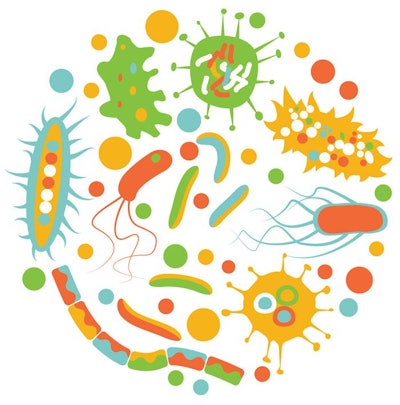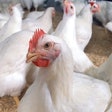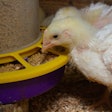
As poultry producers shift to “no-antibiotics-ever” production systems, we need new tools to address the variety of challenges that come with the shift, and a new area of science is emerging that is offering a great deal of promise: the microbiome.
Research in human medicine is leading the way as we start to understand how the microbiome affects everything from intestinal health to obesity and mental disorders, and scientists are starting to bring this innovative thinking to poultry health as well.
While still in the very early stages of discovery, advances in the microbiome have the potential to bring great benefit to poultry producers.
The microbiome, discovery of a new organ
We are surrounded by bacteria. They live in our noses, in our intestinal tracts and on our skin, and chickens are no different. We call this collection of bacteria the microbiome, and it plays such an important role that scientists have begun to define it has a new organ.
Chickens, it turns out, are more bacteria then they are bird. Science has shown us that this microbiome has hundreds of times more cells and genes than the chicken itself, and we are just starting to understand what an important role this microbiome “organ” plays in poultry health and performance.
Fecal transplants for chickens?
In human medicine, we have seen important advancements in the concept of fecal transplantation for drug-resistant Clostridia infections that have led to development of therapeutic drugs currently in clinical trials. Following these efforts, poultry researchers have begun to innovate in this field as well.
Researchers at the U.S. Department of Agriculture and elsewhere have characterized the chicken gastrointestinal microbiome and speculate that advances in this area can lead to strategies that improve gut health through microbiome manipulation as an alternative to subtherapeutic antibiotics, improve management of poly-microbial poultry diseases, and better control of human pathogens in the food chain.
Other researchers are investigating whether the transfer of the microbiome of high-feed-efficiency poultry to low-feed-efficiency poultry can result in a new way of improving overall poultry performance.
A third example is research investigating the effect of transferring the microbiome from hens to day-of hatch poultry to improve early chick viability, performance and resistance to pathogen colonization.
The result of these and many other studies are likely to be discoveries that could lead to new and effective ways at overcoming diseases and improving efficiencies in poultry production.
Innovation beyond probiotics
If you ask an expert in this field about the microbiome, they will often reply that we are already positively impacting it with feed additives such as probiotics and prebiotics. It is true these are fantastic tools for positively impacting gut health, and are especially useful now that we are in the midst of an antibiotic revolution of sorts, but they also have their downsides.
These products are often marketed as feed additives, and as a result have little in the way of a use indication or guarantee as to their actual efficacy, which leads to a lot of trial and error by the end user to understand which works best for them.
Our industry needs innovation in the microbiome -- the kind of innovation we are seeing in human therapies -- to enhance the indications for these products, bring a better guarantee of efficacy, and increase the outcomes for end users. Poultry health is on the brink of new and exciting investments in discovery and innovation and no doubt we will see the microbiome playing a key role.
Poultry health: understanding prebiotic, probiotic roles

















